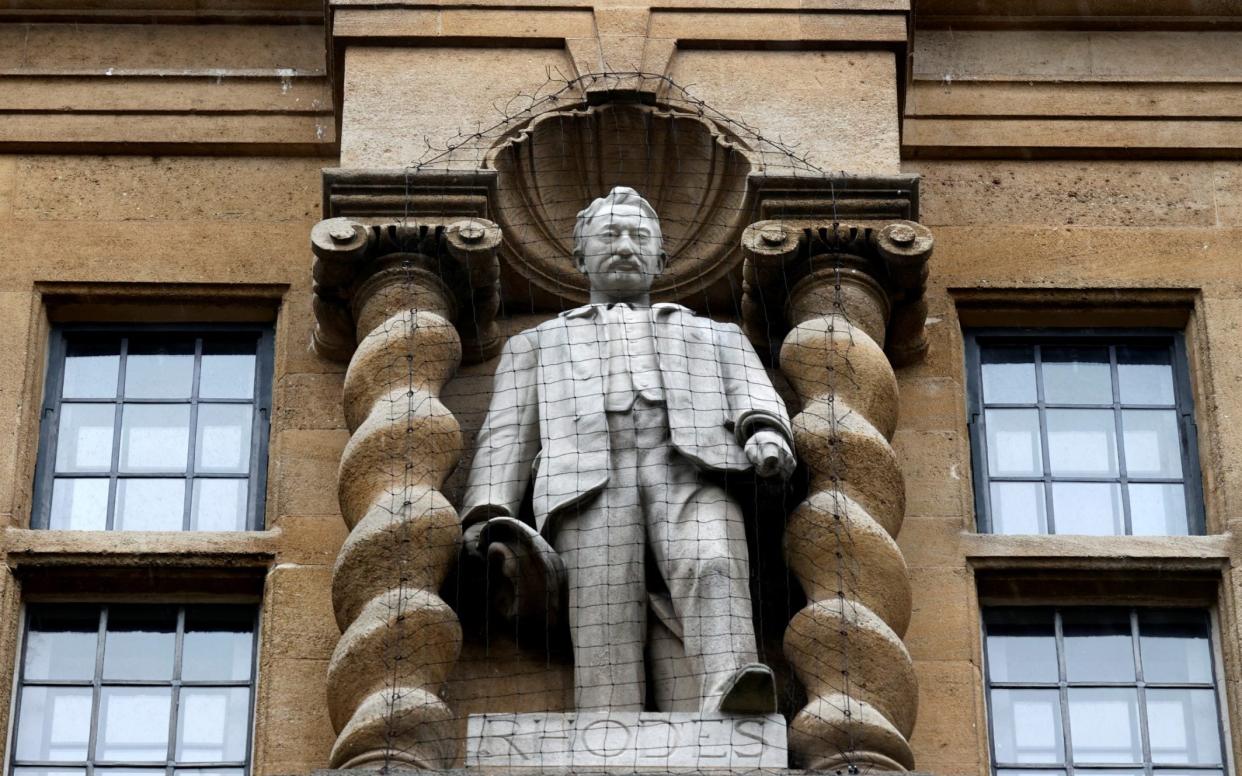Boris Johnson says college agreeing to remove Rhodes statue 'like politician changing Wikipedia entry'

Oxford University's Oriel College behaved "like some politician sneakily trying to change his Wikipedia entry" when it agreed to take down the statue of Cecil Rhodes, Boris Johnson has said.
The Prime Minister, who attended the university in the 1980s, revealed that he does not think the statue of Rhodes, a 19th century industrialist who donated a huge sum to the college in his will, should come down.
On June 18, Oriel College recommended the removal of the statue following an outcry over Rhodes' links with Britain's colonial past and a five-year campaign by students.
But Mr Johnson told Thursday's Evening Standard newspaper that removing Rhodes' statue was like "trying to bowdlerise or edit our history".
He said: "I'm pro-heritage. I'm pro-history, and I'm in favour of people understanding our past with all its imperfections.
"I want to build people up, not tear people down. If we go around trying to Bowdlerise or edit our history in this way, it's like some politician sneakily trying to change his Wikipedia entry."

Mr Johnson backed calls for more new statues of black heroes and said the late Muhammad Ali, one of the greatest sportsmen of all time and a fighter against racial discrimination, was the black figure he would most like to honour with a statue in London.
He added: "I don't know how we claim credit for him in London, but I'm sure he is a Londoner in some way."
The removal of the Rhodes statue is subject to consultations over planning regulations. A commission, chaired by Carole Souter, the current master of St Cross College, will report by the end of the year.
Rhodes made his fortune in diamond mining and was one of the most powerful men in the British empire, founding the southern African colony Rhodesia – now Zimbabwe – and naming it after himself in 1895.
In the late 19th century, he progressed from being a speculative digger to establishing De Beers Consolidated Mines Ltd, which owned 90 per cent of the world's production of diamonds by 1891.
Rhodes was admired by Hitler and had a reputation for being racist, but in 1899 Oxford University awarded him an honorary doctorate of law.

 Yahoo News
Yahoo News 
